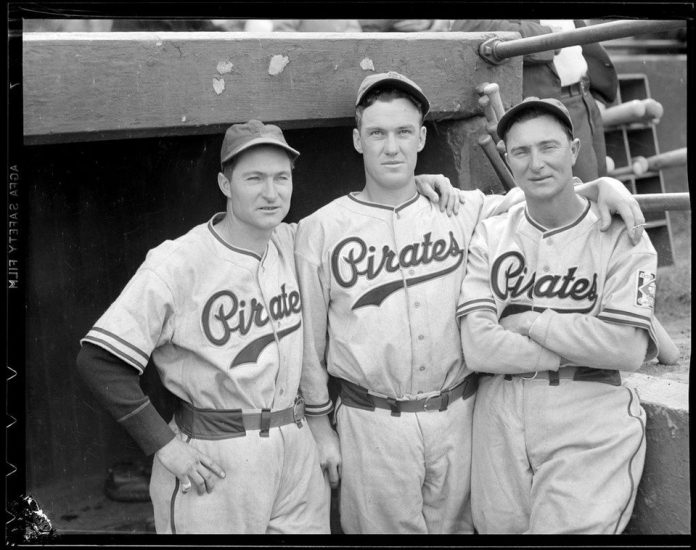The 1940 Pittsburgh Pirates opened their regular season on April 16th. Prior to the season, they played a long series against the Philadelphia Athletics of the American League. In 12 games total, the Pirates won the exhibition series over the Athletics 9-3.
If you follow Spring Training baseball closely now, you know that the best players rarely play on back-to-back days, and even if they do, they play 5-6 innings each game. They don’t do a lot of the road games either. Keep that in mind when reading about what happened on April 1, 1940.
After playing a game in Hermosillo, Mexico on March 31st, the Pirates and Athletics traveled to Phoenix, Arizona and played an April 1st doubleheader. No fooling.
Not only does it seem odd that they traveled to Mexico for one game, but then that was followed by a road trip to Phoenix and two games the next day. If that seems a bit extreme for Spring Training, take into account what happened next. After the doubleheader, the two teams traveled another 3+ hours for a game in Bisbee, Arizona, which was another one-day event, before traveling 4+ hours to El Paso, Texas after the game. These weren’t just the B squads doing the traveling, the entire team was taking the trip, including Hall of Famers Lloyd Waner, Paul Waner and Arky Vaughan.
The manager of the Pittsburgh Pirates at the time was Frankie Frisch, the Hall of Fame second baseman, who saw his team go 8-3 in the first 11 games of the series. He told his team if they won the game in Bisbee, then they would have the next day off. Imagine an off-day riding on the outcome of a Spring Training game now?
Luckily for the Pirates, outfielder Johnny Rizzo, who once held the team’s single-season record for homers (23 in 1938), wanted no part of workouts on April 3rd. He drove in seven runs in a 10-8 win. The Pirates would soon after reward him with a trade to the Cincinnati Reds.
The crazy day in the middle of that schedule was the doubleheader (seven inning games) scheduled for Phoenix, which happened 80 years ago today. The Pirates narrowly escaped with a win in the first game, after taking an early 6-2 lead. Starter Russ Bauers pitched into the sixth inning, where he gave up five runs and the lead. The Pirates came back with two runs in the bottom of the inning and two relievers finished out the 8-7 win.
Game two was another high scoring contest with a few oddities mixed in. The starter was 34-year-old veteran Danny MacFayden, who was in his 15th season in the majors at the time. It was 22 days before his first start of the regular season, but Frankie Frisch let him throw a seven inning complete game, even after he gave up five runs over the final two innings. The Pirates won 8-5.
Outfielder Deb Garms, who already had seven seasons in the majors and was 32 years old, played all 14 innings. He started in right field one game and left field the other. Frisch made a point to say how well Garms was playing and how he was earning extra playing time. It turned out to be a smart move, as Garms batted .355 during the season and won the NL batting title. In game two of the doubleheader, Garms hit a ball over the outfield wall, but it hit a cable wire and bounced back into the field of play for a double.
Arky Vaughan was the hero in game two, driving in four runs. He didn’t start the first game, though he was used as a pinch-hitter. The Waner brothers saw very little action after playing the day before in Mexico. Paul started game one, played the entire contest and picked up two hits. Lloyd had the day off.
After the game, Eugene Handley was sent back to the minors, while his brother Lee remained with the Pirates. Eugene wouldn’t make his big league debut until 1946, while playing for the Athletics.
The 1940 Pirates finished 78-76, which was a 9 1/2 game improvement on the previous season. So the hectic Spring Training schedule didn’t seem to make a difference. It probably helped that weather wiped out all five regular season games from April 17-21, so they got some extra unexpected time off.



